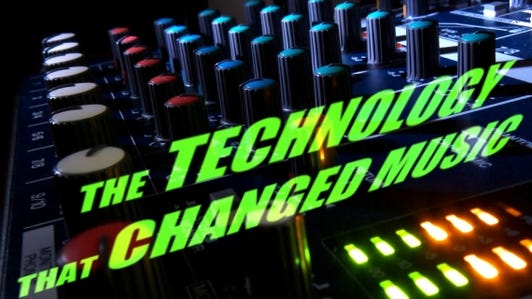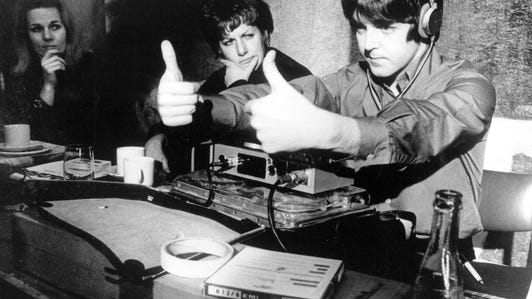 Enlarge Image
Enlarge ImageRune Hellestad/Corbis
The future of the BBC could include a new music discovery service and an iPlayer for kids, as the venerable, publicly funded broadcaster races to reshape itself in the face of government cuts.
Established in 1922, the British Broadcasting Corporation faces the challenge of staying relevant in our increasingly digital and global era. Its licence fee-funded nature makes it something of a political hot potato, especially with the current Conservative government insisting on austerity measures. Auntie Beeb’s finances are to be stretched by assuming the cost of operating the previously government-funded World Service, and footing the £600 million bill to give free television licences to over-75s. With further cuts required, BBC4 and some radio stations are reported to be under threat, with job losses likely.
It’s under these pressures that BBC Director General Tony Hall today presented the proposals for the corporation’s future. These include a number of technology-related initiatives.
One new proposal is a new music discovery and streaming service from the corporation. The service would take the songs played on BBC radio stations and make them available to stream for a limited time. It would be based on the current Playlister service, which gives you playlists from your favourite shows and allows you to export them to streaming services such as Spotify.
“The BBC has been taking an increasingly liberal approach to digital music services,” said music industry observer Mark Mulligan of Midia Research, “seeking out ways it can coexist with the streaming ecosystem rather than replacing it.”
From wax cylinders to Auto-Tune: The technology that changed music






+33 more
The BBC asserts that the public interest of such a service lies in using curated playlists to support up-and-coming acts, niche genres and specialist artists and labels. While some might argue that a service like this is out of the BBC’s remit, Mulligan believes that the BBC has the authority to help music fans: “The challenge of streaming is now how to make sense of all the music in the world,” he said. “Consumers have so much choice that they are overwhelmed. This is the tyranny of choice. The role of a trusted curator like the BBC is making sense of all that music.”
iPlay: You know, for kids
Another new proposed service is iPlay, an iPlayer for kids. Hall describes iPlay as a “single, online front door for children to the wealth of the whole BBC and our trusted partners”. The Beeb says programmes will be featured only if they are free of commercial influence that feeds “pester-power”, when kids beg parents for toys or merchandise seen in their favourite shows.
more on the BBC
- Enjoy BBC TV and radio shows on iPlayer for a whole month
- BBC boss: I remain confident about the future of ‘Top Gear’
- Grand Theft Auto creator sues BBC over behind-the-scenes look at game
- Apple’s Beats 1 and the future of radio: Why one station ditched broadcast and went online
The aim of iPlay is to present content on a scale from childhood through adolescence and into young adulthood so growing youngsters can enjoy at their own pace as they mature, rather than lumping them into the two categories of current kids channels CBeebies and CBBC. Kids can also get involved themselves with tools to learn about animation, music, blogs, vlogs and podcasts, coding, app development and 3D printing.
More from Auntie Beeb
Similarly, the new proposals suggest that when BBC Three becomes an entirely online channel it would be opened up to more experimental programming with contributions from newcomers, and creative types outside the established world of TV production centred in London.
Hall also acknowledged the BBC’s growing competition with online services such as Netflix or Amazon Instant Video. He affirmed the corporation’s commitment to high-quality drama, that can both compete with shows like Netflix’s “House of Cards” and also earn some cash by being sold to Netflix or other broadcasters outside the UK.
Meanwhile iPlayer could also be opened up to deliver content from other sources, such as the National Theatre or Royal Opera House. And BBC news could move from rolling news to streaming news.
Other proposals include a team of 100 “public service reporters” who would work with local newspapers.
More changes and updates for the BBC are set to be announced between now and 2016, when the corporation’s royal charter — its agreement with the government over its remit and funding — is up for renewal.




